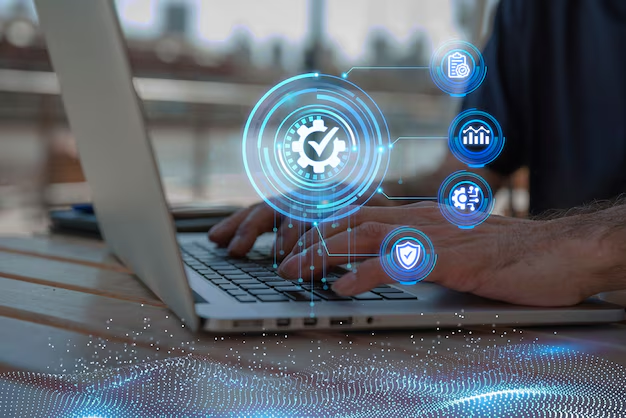Revolutionizing the Future: The Role of Technology in the Next Decade
“Revolutionizing the Future: The Role of Technology in the Next Decade” is an exciting and broad topic that delves into how emerging technologies are shaping our future and transforming various aspects of life, from healthcare to entertainment, education, and beyond. Over the next decade, we can expect to see dramatic shifts as technological innovations continue to evolve at a rapid pace. Below are key areas where technology is expected to play a transformative role:
1. Artificial Intelligence and Machine Learning
- Automation and AI Integration: AI is set to revolutionize industries by automating tasks that were once done by humans, from customer service to data analysis. In the next decade, we’ll likely see AI systems handling complex decision-making in industries such as finance, healthcare, and logistics.
- Advanced Personalization: AI will enable more personalized experiences in everything from education to entertainment. Algorithms that understand individual preferences will drive more tailored content, services, and products, making interactions more seamless.
- Ethical AI: As AI becomes more integrated into daily life, discussions on ethics and transparency will grow. Ensuring that AI systems are fair, non-discriminatory, and accountable will be key to maintaining trust and safety.
2. Quantum Computing
- Breakthroughs in Computational Power: Quantum computing promises to solve problems that are currently impossible for classical computers, especially in fields like cryptography, drug discovery, and complex simulations. Over the next decade, we may witness the development of practical quantum computers that can revolutionize industries reliant on large-scale data processing.
- New Algorithms and Applications: Quantum computing could pave the way for breakthroughs in machine learning and artificial intelligence, creating algorithms that process vast amounts of data more efficiently than ever before.
3. Healthcare Technology
- Telemedicine and Remote Health Monitoring: The pandemic accelerated the adoption of telemedicine, and by the next decade, virtual healthcare services are expected to become more integrated, with remote monitoring devices that allow doctors to track patients’ health in real time.
- Personalized Medicine: Advancements in genomics, CRISPR gene editing, and AI-driven diagnostics will allow for treatments tailored to an individual’s genetic makeup, significantly improving outcomes for patients.
- AI in Diagnostics and Drug Discovery: AI will help speed up drug development and more accurately diagnose diseases by analyzing medical imaging and patient data faster than human doctors, improving early detection and reducing diagnostic errors.
4. The Internet of Things (IoT)
- Smart Cities: In the next decade, IoT devices will create interconnected urban environments, improving everything from energy efficiency to traffic management and public safety. Cities will collect data from sensors to improve services like waste management, water use, and air quality monitoring.
- Smart Homes and Everyday Objects: With smart devices, homes will become more intuitive, with technology adapting to user needs automatically. From refrigerators that can restock groceries to AI-powered personal assistants that anticipate daily needs, the Internet of Things will make daily life more convenient.
5. 5G and Connectivity
- Hyperconnectivity: The rollout of 5G networks will provide faster internet speeds, ultra-low latency, and higher capacity, enabling innovations in augmented reality (AR), virtual reality (VR), and autonomous systems. This will revolutionize industries like gaming, entertainment, healthcare, and transportation.
- Autonomous Vehicles: 5G’s low latency is crucial for the safe operation of autonomous vehicles, allowing for real-time communication between vehicles, infrastructure, and other connected devices. The next decade will likely see widespread testing and implementation of self-driving cars, trucks, and drones.
6. Augmented Reality (AR) and Virtual Reality (VR)
- Immersive Experiences: AR and VR technologies will continue to evolve, offering fully immersive experiences in education, entertainment, and remote work. From virtual classrooms to realistic VR gaming environments, these technologies will change how we interact with the digital world.
- Remote Work and Collaboration: AR and VR can bring people together in virtual spaces, allowing for more interactive meetings, brainstorming sessions, and collaborative work environments, reducing the need for physical travel and providing more engaging ways to work from home.
7. Blockchain and Decentralized Systems
- Blockchain Beyond Cryptocurrencies: While blockchain technology is best known for powering cryptocurrencies, it will play a larger role in securing digital transactions, verifying identities, and creating more transparent supply chains. Industries like finance, healthcare, and even voting could use blockchain for secure, immutable records.
- Decentralized Finance (DeFi): The growth of decentralized finance could disrupt traditional banking systems by providing peer-to-peer financial services, removing intermediaries and making financial transactions more accessible globally.
8. Sustainability and Green Technologies
- Renewable Energy Solutions: Technology will continue to drive innovation in solar, wind, and other renewable energy sources. Expect to see breakthroughs in energy storage, which will help address the intermittency of renewable sources, and the widespread adoption of electric vehicles (EVs).
- Carbon Capture and Climate Tech: Advances in carbon capture technology, alongside new methods for reducing greenhouse gas emissions, will help mitigate climate change. In the next decade, sustainable practices and green technologies will become more mainstream, from clean energy solutions to circular economies.
9. Cybersecurity and Privacy
- Advanced Threat Detection: As technology evolves, so do cyber threats. In the coming decade, AI and machine learning will play key roles in detecting and preventing cyberattacks before they happen, securing everything from personal devices to critical infrastructure.
- Privacy in the Digital Age: With the growth of data collection, privacy concerns will become more pronounced. Expect stronger regulations and privacy protections to safeguard personal information, as well as more secure technologies like encryption and zero-knowledge proofs.
10. Space Exploration and Technology
- Commercial Space Travel: In the next decade, space tourism and commercial space ventures will become more accessible to the public. Companies like SpaceX, Blue Origin, and Virgin Galactic are paving the way for space tourism, which may include suborbital flights for civilians.
- Space Colonization and Resources: The potential for mining asteroids and setting up human colonies on Mars or the Moon could revolutionize how we think about resources and space exploration. Technology will be key to overcoming challenges like sustainable life support systems and space travel logistics.
11. Education and Learning
- AI and EdTech: The integration of AI and personalized learning platforms will make education more tailored and accessible. Virtual classrooms, AI tutors, and adaptive learning technologies will provide more individualized learning experiences for students of all ages.
- Lifelong Learning: As technology changes rapidly, the need for continuous learning will increase. Online courses, virtual reality training, and microcredentials will become more mainstream, enabling individuals to gain new skills quickly and efficiently.
12. Ethics and Social Impact
- Tech for Good: As technology advances, there will be a growing focus on using it to address social challenges, such as poverty, inequality, and access to healthcare. Innovations that prioritize social good and sustainability will be integral to shaping the future.
- Regulating Emerging Tech: Governments and international bodies will need to keep pace with new technologies by establishing regulations that balance innovation with ethical considerations, privacy protection, and societal well-being.
Conclusion:
The next decade holds immense potential for technological innovation across many areas of life. While these advancements bring exciting possibilities, they also raise important questions about ethics, equity, and privacy. Balancing technological growth with responsible development will be key to ensuring that the future is one where technology serves humanity and addresses the challenges of tomorrow.
Is there a specific technology or area you’d like to explore in more detail?

